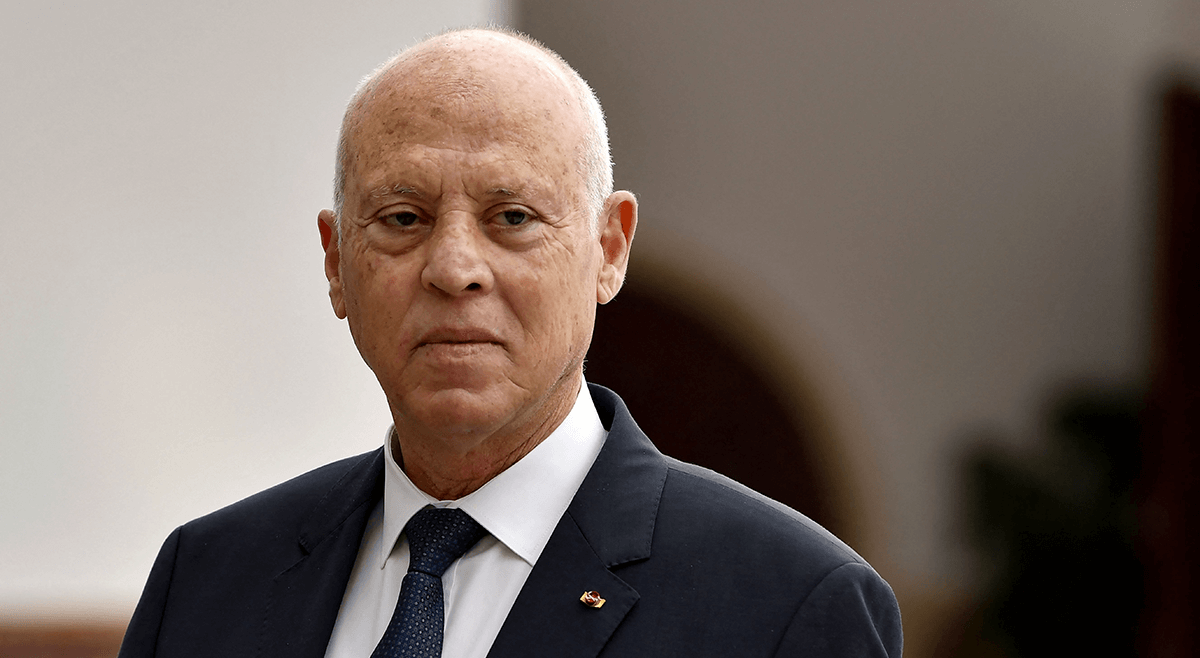Tunisian President Kais Saeid on Wednesday dissolved the parliament eight months after suspending it in July. Saied made the announcement hours after Members of Parliament (MP) held an online session and voted to reject his power grab.
Saied condemned the vote as an attempted coup against him and said the MPs had betrayed the nation. “What happened today, the so-called ‘virtual meeting’ is illegal, because the Assembly and its bureau are frozen,” Saied said. He added, “The State will only recover through an independent judiciary, opposed by those who try to undermine the State, and those who desperately try to stage a coup.”
He also threatened to punish the lawmakers for staging the online vote. “They will be criminally prosecuted,” he warned. The President stressed that his move was meant to protect the nation from division and prevent the “abusers” from continuing their aggression against Tunisia.
Saied’s furious snap decision to dissolve parliament & his desperate accusation that its members were coup-plotting were prompted by this: Today—for first time since Saied suspended it on July 25—a quorum of MPs from Tunisia’s parliament gathered online to discuss legislation.
— Monica Marks (@MonicaLMarks) March 30, 2022
The President’s move was denounced by Tunisia’s largest party, Ennahda, which said that the decision to dissolve the parliament “represents a further dismantling of the state and its institutions” and is a violation of the constitution. Furthermore, the party blamed Saied for putting Tunisia’s democracy in danger and intensifying Tunisia’s political and economic crisis.
On Wednesday, 121 MPs participated in a symbolic online session that Ennahda called “legal and legitimate” in which 116 of the lawmakers voted to end the “exceptional measures” taken by Saied following his decision to suspend the parliament and dismiss the then Prime Minister.
Saied had quoted Article 80 of the constitution when he suspended the parliament last year. The article states that in the “event of imminent danger” to the Tunisian republic, the President “may take any measures necessitated by the exceptional circumstances.” Moreover, it says that any such measures must ensure “a return to the normal functioning of state institutions and services.”
However, the President has demonstrated no interest in putting the country back on its democratic path and, with the move to dissolve the parliament, has violated the terms set by the constitution. Article 80 adds that the parliament “shall be deemed to be in a state of continuous session” even if it is suspended and the President “cannot dissolve” the parliament during this period.
According to Article 80 of the Constitution used by Saied on July 25th to justify his coup, "the President of the Republic CANNOT dissolve the Assembly of the Representatives of the People". https://t.co/6uwbcDF5QO pic.twitter.com/HSxmkQvkyj
— Mohamed-Dhia Hammami - محمد ضياء الهمامي (@MedDhiaH) March 30, 2022
The move was also condemned by the United States. State Department spokesperson Ned Price said on Thursday that Washington is “deeply concerned” with the President’s decision to unilaterally dissolve the parliament. “We have consistently communicated to Tunisian officials that any political reform process should be transparent and inclusive, and undertaken in coordination with a range of political parties, labour unions, and civil society,” Price added, urging Saied to swiftly return to constitutional government.
In July 2021, in a power grab, Saied indefinitely suspended the parliament, dismissed the PM, and lifted the immunity of all lawmakers. The decision was condemned by the opposition, who called it a coup. The Ennahda Party said it was “unconstitutional, illegal, and invalid” and that it marked a “return to dictatorship.”
Since then, rather than trying to return to normalcy, Saied has been taking measures to consolidate his position and power, including suspending the constitution, declaring rule by decree, unilaterally appointing a Prime Minister loyal to him, and replacing the country’s independent judicial watchdog.

